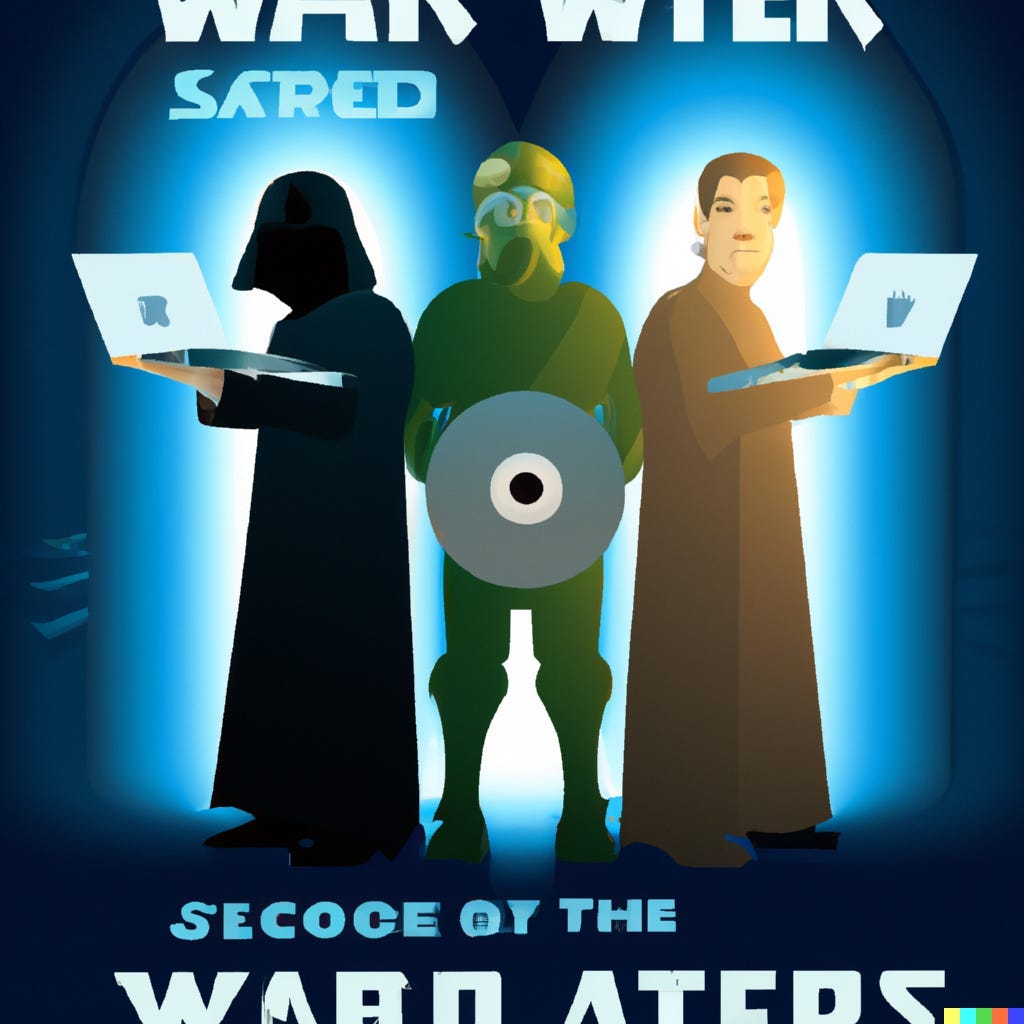Roku Takes on The Trade Desk, While Google Takes on Roku
Breaking down the Ad Tech Streaming Wars (and the OS Empire)
While the media industry focused on the latest salvo in the Streaming Wars this past week - it’s not TV, and it’s also not HBO - I found myself contemplating the behind the scenes skirmishes in the CTV Ad Tech Wars, along with the Quest to Own The TV OS.
Specifically, I mean Roku’s quiet maneuvering to take on the Trade Desk, and Google’s under-the-radar attempt to unseat Roku in TV.
Before I get into that, some cool news from me: my podcast has been retooled and relaunched with a new name - Next in Media - new sponsor - MiQ -and best of all, a new distribution partner in Beet.TV.
Check out the latest episode with Miles Fisher, Roku’s Senior Director, Ad Platform Sales & Strategy here. I think you’ll really learn alot.
It was my conversation with Fisher that gave me the idea for this week’s post.
While much is made of Roku pushing into the ads sales/upfront area, including original series and movies about Weird Al, the device maker is an ad tech player at heart. We mostly think about Roku’s ad tech as being built for its own properties and systems - but as Fisher explained, the company wants it’s DSP- OneView-to become thee DSP in connected TV - the vehicle through which brands buy and then measure all their TV activity.
“We really think of OneView as the best to buy all of connected TV,” Fisher told me.
Because Roku has its own identifier, advertisers can use that ID not only to track reach and frequency on Roku buys, but on Hulu and Tubi and everywhere else you can purchase CTV programmatically, Fisher said. Which sort of flips the walled garden accusations on its head.
“We’re extremely well positioned to be the CTV DSP,” he said. “Our biggest hurdle is articulating that to the market. Educating brand and agencies that the switching cost is worth it from the incumbents, that actually lack signals.”
While he didn’t name names, those ‘incumbents lacking signals’ are surely The Trade Desk, and Fisher’s old company Google.
Speaking of Google, Roku looking to become not only a huge CTV seller but a ‘neutral’ buying platform is a very Googley move, one that opens up Roku to all sorts of conflict questions. Are agencies and brands, who have been drawn to TTD’s independence, likely to move their buying - and data - to a company they are also negotiating ad rates with?
Fisher contends that in CTV, where cookies don’t matter and IP addresses may prove flimsy, identifiers will be everything. That’s where he sees Roku with an advantage.
Plus, because Roku collects ACR data from the sets its software powers, the company can help brands manage their linear buys as well. Of course, there are umpteen players contending they can help do the same.
To be sure, each and every quarter TTD touts double digit revenue growth from CTV - so whatever identifiers it may be lacking so far aren’t hurting the company.
If Roku has an ace in the hole, it’s its market share. According to Fisher, the company ‘touches’ one out of every two CTV ad impressions. Roku says its software is plugged into more than a third of smart TVs sold, plus it is making its own TV sets.
This is where Google wants to make hay.
Earlier this week, Variety reported that Google is bringing together over 800 livestreaming channels into its Google TV interface, which is baked into TVs from Sony, TCL, Hisense and Philips, as well as Google’s Chromecast interface.
Interestingly, Google is pushing an ‘app-free’ CTV user interface, according to Variety. What’s the play here? I’m not sure. Clearly, every TV that carries Google’s software is one that doesn’t carry Roku’s (or Amazon’s). Does Google want to follow Roku’s playbook and just sell ads for other CTV companies in exchange for distribution? Are they working on a bigger plan to monetize their growing TV OS share?
Or is this simply about just building up more TV inventory that can be packaged with YouTube? Google has already introduced FAST channels via YouTube, and any livestreaming inventory on Google TV would just seem to add more ‘premium’ ad space to the pile.
At the same time, YouTube seems to be thinking much bigger, such as inking a deal to sell NFL Sunday Ticket while sniffing around the upcoming NBA streaming rights. It’s not clear to me how owning TV’s operating system fits into Google’s broader TV ambitions.
It’s also not entirely clear to me that owning the OS is the end all be all (I) we’ve made it out to be in TV.
At this point, no one single player - whether it be Roku, Amazon, Vizio, old fashioned cable TV, or Google- appears on its way toward owning the home, as well as controlling the flow of data and dollars. Instead, fragmentation rules. Yet the intensity of the battle for control seems to signal that the prize is worth it. Sounds a lot like ad tech.




state privacy law compliance is a huge challenge in this space... California deeming much of the cross app tracking to be a sale, optouts not quite coordinated. Lotta work to do!
state privacy law compliance is a huge challenge in this space... California deeming much of the cross app tracking to be a sale, optouts not quite coordinated. Lotta work to do!